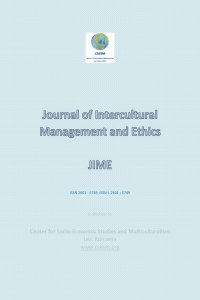Knowing more is not always knowing better. An ethical approach to the direct-to-consumer genetic tests
Knowing more is not always knowing better. An ethical approach to the direct-to-consumer genetic tests
Author(s): Bianca Hanganu, Irina Smaranda Manoilescu, Beatrice Gabriela IoanSubject(s): Health and medicine and law, Scientific Life
Published by: Center for Socio-Economic Studies and Multiculturalism
Keywords: rapid genetic testing; risks; benefits; ancestral origin; genetic predisposition;
Summary/Abstract: Introduction. The completion of human genome sequencing in 2003 opened the door to new research on understanding diseases that affect the human being and the risk of their occurrence, as well as detailed knowledge of population and parenthood. Moreover, in recent years, more and more kits with simple use at home have been marketed, through which the population can find out details about their own genetic load. But these tests are not without risks. Material and method. The authors conducted a literature research to identify the ethical issues raised by the use of rapid genetic testing kits at home. Results. Direct-to-consumer genetic tests involve collecting a smear of epithelial cells from the jugal mucosa or a saliva sample. The benefits of these tests are at the individual level, allowing people to find detailed information about ancestors and their heritage, establishing parenting, certain genetic traits that characterize them or if they are carriers of a genetic mutation responsible for the occurrence of various diseases. On the other side these analyzes are accompanied by risks that should not be neglected: the strong emotional load- especially in the case of health risks or parenting, relatively low accuracy with the possibility of false positive or false negative results, the security of data stored in databases, data confidentiality, use of information for commercial purposes. Also, the direct-to-consumer genetic tests call into question the observance of individual autonomy by the fact that the individuals who use them often have incomplete or incorrect information regarding the relevance of the obtained results. Conclusions. Although advances in science bring the possibility of genetic analysis into the homes of ordinary people, it must not be forgotten that the benefits must always be weighed against the associated risks, as genetic analysis can provide sensitive information that must be properly protected and understood.
Journal: Journal of Intercultural Management and Ethics
- Issue Year: 5/2022
- Issue No: 2
- Page Range: 63-69
- Page Count: 7
- Language: English

